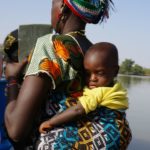
Child to be granted nationality independent of circumstances of birth
Two years ago, a child was born in Spain to a same-sex couple – one mother is from Bulgaria, the other mother is from the UK. The child’s Spanish birth certificate lists both mothers as her parents. The legal systems of the UK and Spain do not give her citizenship, as a result, she is still a stateless child. And even though her Bulgarian mother by law gives her automatic Bulgarian citizenship, the Bulgarian authorities claimed that a child cannot have two mothers and as a result, the child cannot have a Bulgarian nationality.
On the 14 December 2021, the Court of Justice of the European Union gave its judgement in a preliminary ruling case. The judgment obliges Bulgaria to recognize the legal parent-child relationship of the child with each of her parents and issue an identity card or a passport to that child, which enables the family to exercise their right to free movement of persons. The ruling is binding on all EU member states.
Child Identity Protection (CHIP) welcomes this decision as it promotes the child’s right to nationality. As it was a preliminary ruling, the case did not address the issue of whether the child’s gestational and genetic origins (e.g. use of third party human reproductive material) should also be recorded as a fundamental element of the child’s origins and potential family relations.
Source: full decision https://curia.europa.eu/juris/document/document.jsf?text=&docid=251201&pageIndex=0&doclang=FR&mode=req&dir=&occ=first&part=1&cid=8346182 and summary https://curia.europa.eu/jcms/upload/docs/application/pdf/2021-12/cp210221en.pdf





